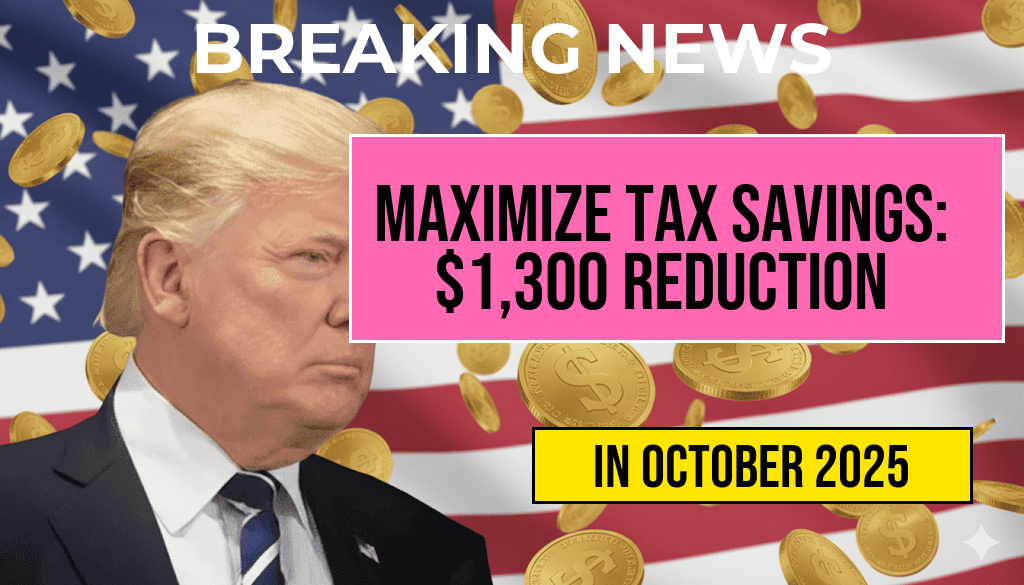As tax season approaches in 2026, the Internal Revenue Service (IRS) is implementing new penalties for late-filed tax returns that could cost taxpayers an additional $485. This significant increase in penalties is part of a broader effort to ensure compliance and efficiency within the tax system. With recent changes to tax regulations and the IRS’s focus on enforcing deadlines, the stakes are high for individuals and businesses alike. Understanding the implications of these penalties is crucial to avoid unnecessary financial burdens. Taxpayers should familiarize themselves with the updated rules and consider taking proactive steps to file on time. This article explores the reasons behind the rising penalties, the potential impact on taxpayers, and strategies to avoid falling victim to this costly oversight.
Understanding the New Late-File Penalties
Starting in 2026, the IRS will implement a new structure for late filing penalties that could significantly affect those who miss the deadline. The late-filing penalty will increase from the current rate to a flat fee of $485, which will be applied in addition to any interest accrued on unpaid taxes. This change is part of the IRS’s initiative to encourage timely submissions and reduce the backlog of unprocessed returns.
Why the Increase?
The IRS has cited several reasons for the increased penalties. With the growing complexity of the tax code and increasing taxpayer noncompliance rates, the agency aims to deter late filings. Additionally, the IRS has faced challenges in processing returns efficiently, leading to extended delays and frustrations for both taxpayers and the agency. By imposing stricter penalties, the IRS hopes to promote adherence to filing deadlines and streamline its operations.
Who Will Be Affected?
- Individual Taxpayers: Those who file personal income taxes and miss the April deadline will be subject to the new penalties.
- Business Entities: Corporations and partnerships that fail to file their returns on time will also incur the higher penalties.
- Self-Employed Individuals: Freelancers and independent contractors who delay their filings could face significant costs.
Potential Financial Implications
The financial repercussions of late filing can extend beyond the initial penalty. Taxpayers may also face additional interest charges on any taxes owed, compounding their financial obligations. For those who consistently file late, these costs can accumulate, leading to a substantial financial burden over time.
Strategies to Avoid Late-Filing Penalties
To mitigate the risk of incurring the new penalties, taxpayers can adopt several proactive strategies:
- File Early: Submitting tax returns well before the deadline can prevent last-minute issues and reduce stress.
- Use IRS Resources: The IRS offers various resources, including online tools and guides, to assist taxpayers in understanding their obligations. Visit the IRS website for more information.
- Consider Professional Help: Hiring a tax professional can ensure that returns are filed accurately and on time, providing peace of mind.
- Set Reminders: Utilizing digital calendars or reminder apps can help taxpayers stay organized and aware of upcoming deadlines.
Conclusion
As the IRS prepares to implement these new penalties in 2026, taxpayers should take immediate action to understand the potential impact on their financial situations. By being informed and proactive, individuals and businesses can avoid the costly mistake of late filings and ensure compliance with the ever-evolving tax landscape. Staying ahead of these regulations is essential, especially as the IRS continues to refine its approach to tax enforcement.
Additional Resources
| Resource | Description |
|---|---|
| IRS Official Website | Access official forms, guidance, and updates directly from the IRS. |
| Forbes Tax Deadlines | Stay informed about key tax deadlines and tips to file on time. |
Frequently Asked Questions
What are the new late-file penalties introduced by the IRS in 2026?
The IRS has increased late-file penalties significantly in 2026, with the potential for taxpayers to incur penalties of up to $485 for failing to file their tax returns on time.
How can I avoid incurring the $485 late-file penalty?
To avoid the $485 late-file penalty, ensure that you file your tax return by the due date. If you need more time, consider applying for an extension before the deadline.
What should I do if I missed the tax filing deadline?
If you missed the tax filing deadline, it’s important to file as soon as possible to minimize penalties. The longer you wait, the higher the penalties can become, including the $485 late-file penalty.
Are there any circumstances that can reduce or waive the late-file penalty?
Yes, the IRS may waive the late-file penalty if you can demonstrate reasonable cause for your failure to file on time. However, you will need to provide sufficient documentation to support your claim.
When should I expect to receive a notice from the IRS regarding late-file penalties?
If you fail to file your tax return on time, the IRS typically sends a notice regarding late-file penalties within a few weeks after the tax deadline. This notice will detail the penalties assessed, including any applicable $485 fees.






